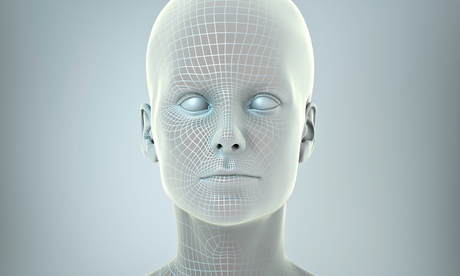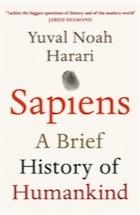A swash-buckling account that begins with the origin of the species and ends with post-humans

The biotechnological revolution signals our replacement by post-humans. Photograph: Alamy
Human beings (members of the genus Homo) have existed for about 2.4m years. Homo sapiens, our own wildly egregious species of great apes, has only existed for 6% of that time – about 150,000 years. So a book whose main title is Sapiens shouldn't be subtitled "A Brief History of Humankind". It's easy to see why Yuval Noah Harari devotes 95% of his book to us as a species: self-ignorant as we are, we still know far more about ourselves than about other species of human beings, including several that have become extinct since we first walked the Earth. The fact remains that the history of sapiens – Harari's name for us – is only a very small part of the history of humankind.
 Can its full sweep be conveyed in one fell swoop – 400 pages? Not really; it's easier to write a brief history of time – all 14bn years – and Harari also spends many pages on our present and possible future rather than our past. But the deep lines of the story of sapiens are fairly uncontentious, and he sets them out with verve.
Can its full sweep be conveyed in one fell swoop – 400 pages? Not really; it's easier to write a brief history of time – all 14bn years – and Harari also spends many pages on our present and possible future rather than our past. But the deep lines of the story of sapiens are fairly uncontentious, and he sets them out with verve.
For the first half of our existence we potter along unremarkably; then we undergo a series of revolutions. First, the "cognitive" revolution: about 70,000 years ago, we start to behave in far more ingenious ways than before, for reasons that are still obscure, and we spread rapidly across the planet. About 11,000 years ago we enter on the agricultural revolution, converting in increasing numbers from foraging (hunting and gathering) to farming. The "scientific revolution" begins about 500 years ago. It triggers the industrial revolution, about 250 years ago, which triggers in turn the information revolution, about 50 years ago, which triggers the biotechnological revolution, which is still wet behind the ears. Harari suspects that the biotechnological revolution signals the end of sapiens: we will be replaced by bioengineered post-humans, "amortal" cyborgs, capable of living forever.
More
 Can its full sweep be conveyed in one fell swoop – 400 pages? Not really; it's easier to write a brief history of time – all 14bn years – and Harari also spends many pages on our present and possible future rather than our past. But the deep lines of the story of sapiens are fairly uncontentious, and he sets them out with verve.
Can its full sweep be conveyed in one fell swoop – 400 pages? Not really; it's easier to write a brief history of time – all 14bn years – and Harari also spends many pages on our present and possible future rather than our past. But the deep lines of the story of sapiens are fairly uncontentious, and he sets them out with verve.For the first half of our existence we potter along unremarkably; then we undergo a series of revolutions. First, the "cognitive" revolution: about 70,000 years ago, we start to behave in far more ingenious ways than before, for reasons that are still obscure, and we spread rapidly across the planet. About 11,000 years ago we enter on the agricultural revolution, converting in increasing numbers from foraging (hunting and gathering) to farming. The "scientific revolution" begins about 500 years ago. It triggers the industrial revolution, about 250 years ago, which triggers in turn the information revolution, about 50 years ago, which triggers the biotechnological revolution, which is still wet behind the ears. Harari suspects that the biotechnological revolution signals the end of sapiens: we will be replaced by bioengineered post-humans, "amortal" cyborgs, capable of living forever.
More
No comments:
Post a Comment